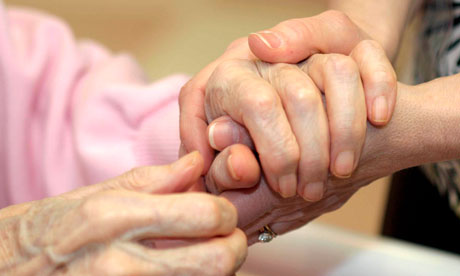Peer bullying, or asserting one's will to intimidate, embarrass, or humiliate others, is rapidly increasing among senior adults. Research shows the problem being so prominent in some retirement communities that new residents are required to understand and sign a code of conduct. If they don't adhere to it, eviction can follow.
Senior advocacy organizations have begun to offer specialized help to cope with the problem. Doctors and ministers are becoming more aware of how to counsel victims. Senior center directors are becoming more alert to detecting and averting bullying behaviors. Television documentaries have been aired on the subject, and a radio station call-in program prompted a surprising number of responses from older victims of peer bullying.
In a retirement home or senior setting, bullying tends to occur more readily because resources are being shared. Vocal insults over board games or the pool table, dining room cliques enforcing certain seating arrangements, motorized vehicle users inconsiderate of people in their path, and shunning of new residents are examples.
Some elders, research shows, will assert themselves in any setting because their childhood behavior problems continue through adulthood. It's the "once a bully, always a bully" phenomenon. The same studies show that in nursing homes, dementia or related conditions can contribute—making some people into bullies, making others even more vulnerable. Both men and women can bully. Passive-aggressive behaviors such as gossiping or belittling someone else are found frequently among women, while men tend to get right in each other's faces.
"There's kind of a continuum to this aggressive behavior," says gerontology expert Robin Bonifas, an assistant professor at the Arizona State University School of Social Work, who is researching senior-to-senior bullying. "Bullying would be on the lower end of the spectrum, and at the higher end you'll have actual incidents of violence between seniors. They could be hitting each other, kicking each other; there have actually been deaths."
Bonifas insists that "the best way to deal with bullying is to have an all-around culture where bullying is unacceptable."
The problem is found, and increasingly recognized, worldwide. Bullying is so widespread in Dutch "old people's homes" that the country's National Fund for the Elderly has developed an anti-bullying protocol it provides to long-term care homes on request. The protocol offers practical tips and possible approaches to deal with bullying.
"It gets really bad sometimes," said Patrick Arnhem, who has been working for decades as a geriatric helper at a major Amsterdam care institution. Since a few years ago, he has been in charge of a small-scale living unit for seniors with dementia. And that is exactly the demographic where bullying can be at its worst. "When one of the residents has their regular spot and the others find out about it, they'll start harassing that person," Arnhem said, "for instance by pushing the other person with their feet under the table, or grabbing the other person's chair and continuously shoving it back and forth."
The fact that these people are suffering from dementia is a complicating factor. They often don't remember that they have bullied somebody or that they were told not to. Sometimes there is only one solution: excluding the bully from communal activities.
Jan Romme, of the National Fund for the Elderly, believes it's important for nursing homes to have a trusted intermediary on their staff to whom elders who are being bullied can go for advice. He also suggests that care institutions put the subject of bullying on their agenda several times a year.
Bullying is not the fault of the victim. Bullies feed off negative emotions because deep down some feel inferior or insecure about themselves. Making others feel bad is the only way they can raise their self-esteem. Here are some bully-coping suggestions:
- Research bullying. It is not always easy to tell the difference between bullying and someone's bad mood. Research will provide insight as to why bullies behave the way they do.
- If you are thinking of moving to a retirement center, ask whether a set of behavior rules is in place, what the rules encompass, and how they are enforced.
- If you or a loved one are being victimized by bullies, discuss it with supervisors, staff, senior advocates or ombudsmen, clergy, a social worker, or a family member, and be prepared to cite specific instances.
- Develop a support network.
- Try to be kind, gentle, and understanding to the bully. Turn the other cheek if possible.
- Sometimes, however, the only thing you can do in a bullying situation is walk away.
By Marguerite Perfett




No comments:
Post a Comment